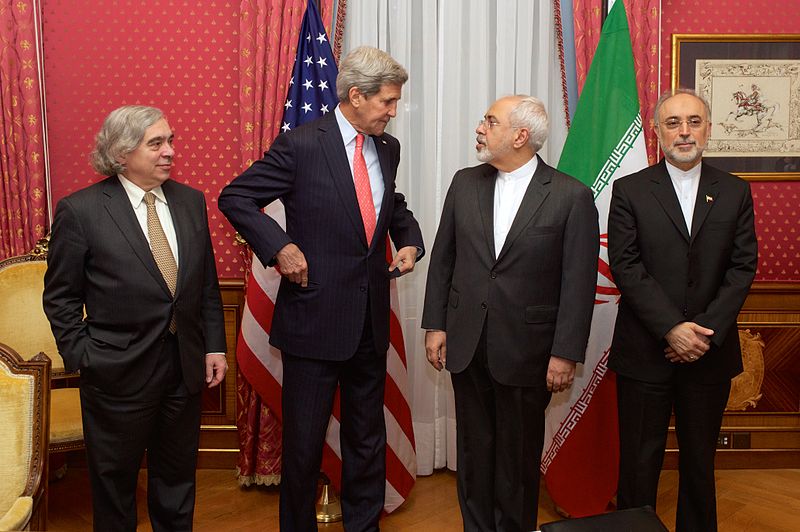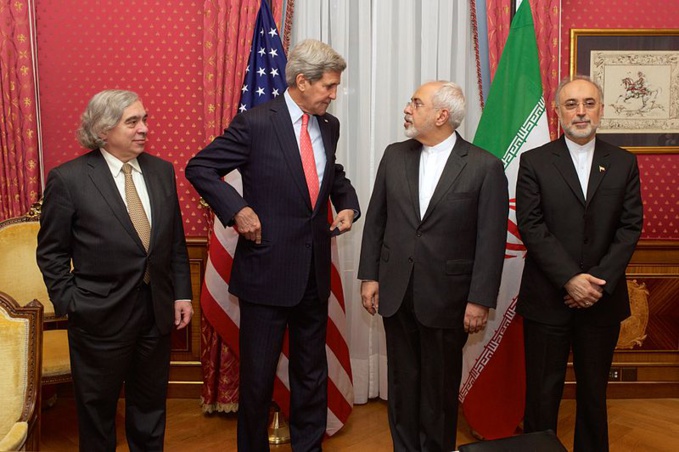Official representative of the Atomic Energy Organization of Iran (AEOI) Behrouz Kamalvandi said that Iran is still strictly following the IAEA’s requirements, which controls execution of the agreement to resolve the Iranian nuclear crisis.
"At present, we have sold 70 tons, and are in talks with interested countries to dispose of it further", - explained the Iranian official. He reiterated Tehran's determination to comply with their obligations under the Joint Comprehensive Plan of Action (JCPOA), signed in the summer of 2015 with six international mediators (the United States, Russia, France, Britain, China and Germany). The same day, Iranian television reported that "a certain amount of heavy water" was hauled away in Oman.
The conciliation statement came in the wake of held at a meeting of IAEA Board of Governors held in Vienna last week, which was a wake-up call for Tehran. Head of the IAEA Yukiya Amano expressed serious concern about Iran fudging on JCPOA’s conditions. "Since the launch of JCPOA, volume of heavy water reserves in Iran has exceeded 130 tons for the second time," - reminded Mr. Amano. In this regard, Head of the IAEA called on Tehran to cease violating terms of the agreement.
The deal with the six international mediators implies that Iran must cut number of uranium enrichment centrifuge up to 6 thousand, open access to its nuclear facilities for the IAEA, and ensure that heavy water accumulated in Arak reactor before its commissioning does not exceed 130 tons (90 tons is a threshold set after start of its operation).
Iran’s gap between saying and doing coincided with heated debates on the deal’s future. There is a hot argument on what kind of future is waiting for Iran after January 20, when 45th President of the United States, Donald Trump, gives the oath. Recall that the Republican candidate earlier claimed to "break into pieces" the nuclear deal with Iran. According to Donald Trump, JCPOA in its current form contains major unilateral concessions to Tehran, not protecting national interests of America. Besides, he is sure that this is a key threat to the US’ main ally in the Middle East, Israel. "This is probably a strong phrase. Trump would take the agreement, revise it, send to Congress, require the Iranians to reconstruct several positions, or to change them, then there will be a discussion." – told adviser to Donald Trump Walid Phares.
In the absence of impending veto, which would have been possible during Obama’s presence, the Republican majority in the US Congress may pass a law, which will actually stop Washington's involvement in the nuclear deal with Iran. One of consequences of attempts to revise nuclear deal with Tehran could be changed political situation in Iran. This, in turn, would weaken Reformers led by President Hassan Rouhani, and strengthen position of Conservatives.
source: bbc.co.uk
"At present, we have sold 70 tons, and are in talks with interested countries to dispose of it further", - explained the Iranian official. He reiterated Tehran's determination to comply with their obligations under the Joint Comprehensive Plan of Action (JCPOA), signed in the summer of 2015 with six international mediators (the United States, Russia, France, Britain, China and Germany). The same day, Iranian television reported that "a certain amount of heavy water" was hauled away in Oman.
The conciliation statement came in the wake of held at a meeting of IAEA Board of Governors held in Vienna last week, which was a wake-up call for Tehran. Head of the IAEA Yukiya Amano expressed serious concern about Iran fudging on JCPOA’s conditions. "Since the launch of JCPOA, volume of heavy water reserves in Iran has exceeded 130 tons for the second time," - reminded Mr. Amano. In this regard, Head of the IAEA called on Tehran to cease violating terms of the agreement.
The deal with the six international mediators implies that Iran must cut number of uranium enrichment centrifuge up to 6 thousand, open access to its nuclear facilities for the IAEA, and ensure that heavy water accumulated in Arak reactor before its commissioning does not exceed 130 tons (90 tons is a threshold set after start of its operation).
Iran’s gap between saying and doing coincided with heated debates on the deal’s future. There is a hot argument on what kind of future is waiting for Iran after January 20, when 45th President of the United States, Donald Trump, gives the oath. Recall that the Republican candidate earlier claimed to "break into pieces" the nuclear deal with Iran. According to Donald Trump, JCPOA in its current form contains major unilateral concessions to Tehran, not protecting national interests of America. Besides, he is sure that this is a key threat to the US’ main ally in the Middle East, Israel. "This is probably a strong phrase. Trump would take the agreement, revise it, send to Congress, require the Iranians to reconstruct several positions, or to change them, then there will be a discussion." – told adviser to Donald Trump Walid Phares.
In the absence of impending veto, which would have been possible during Obama’s presence, the Republican majority in the US Congress may pass a law, which will actually stop Washington's involvement in the nuclear deal with Iran. One of consequences of attempts to revise nuclear deal with Tehran could be changed political situation in Iran. This, in turn, would weaken Reformers led by President Hassan Rouhani, and strengthen position of Conservatives.
source: bbc.co.uk



















